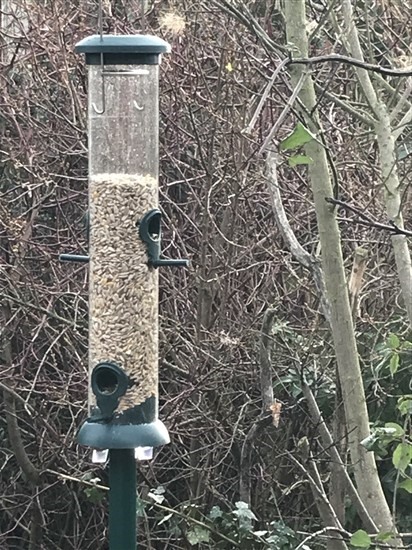It is 8.20am on Sunday morning.
My daughter and I are sitting at our kitchen table. I have had my porridge, she is eating marmite on bread.
We are about to take part in Big Garden Bird Watch. My wife and son are not.

My daughter is in charge of the technology and the bird watching. I am just here.
This year, we have a new feeder (identical to our old one) for our small and very messy suburban garden. I have a theory…